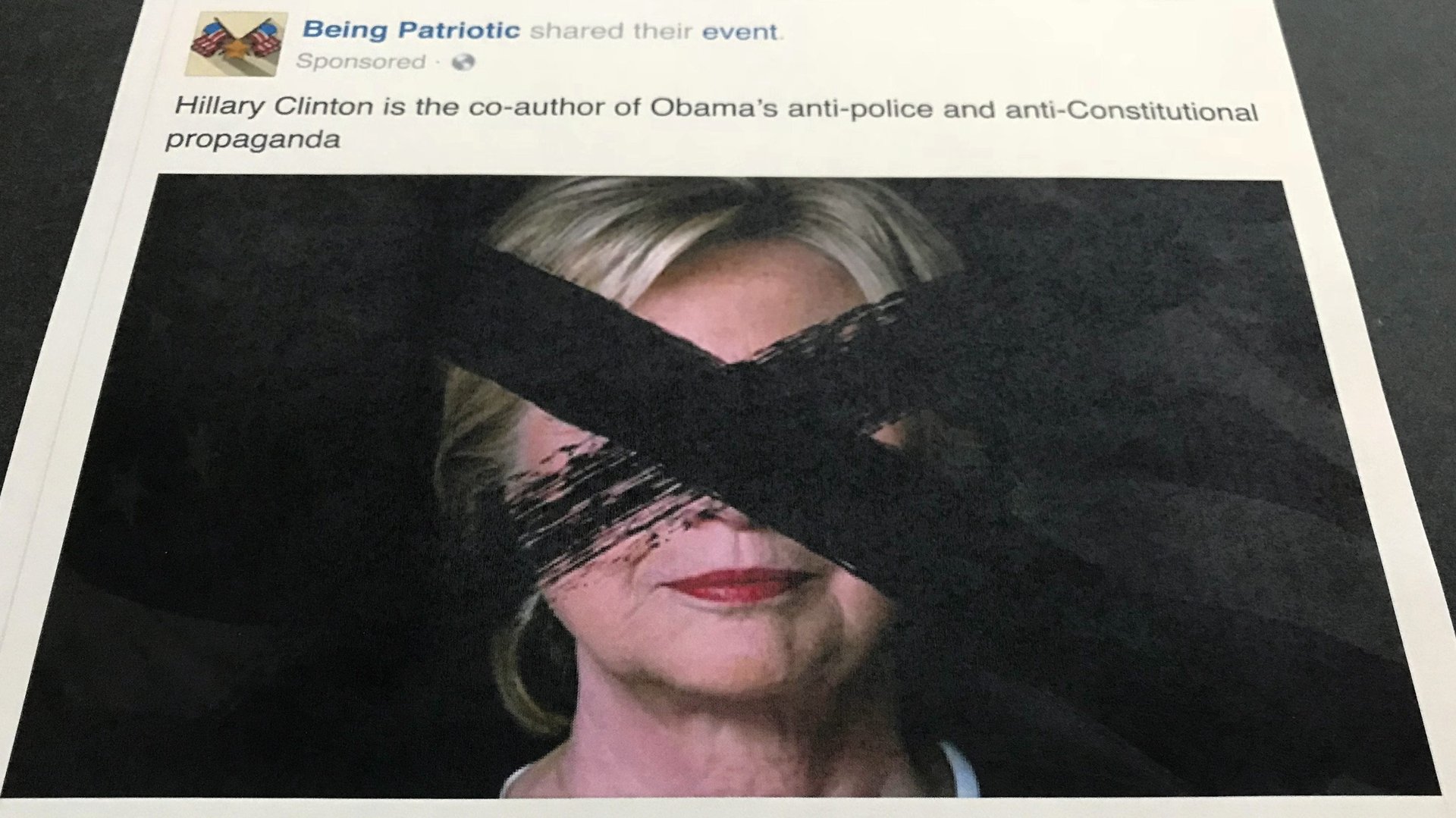Facebook and Trump are telling the same misleading story about Russian propaganda
Following new indictments detailing Russian propaganda operations during US elections in 2016, president Donald Trump brandished a tweet from a Facebook executive to back up his claims that he didn’t collude with the Russians or win because of their actions.


Following new indictments detailing Russian propaganda operations during US elections in 2016, president Donald Trump brandished a tweet from a Facebook executive to back up his claims that he didn’t collude with the Russians or win because of their actions.
There are a few things that need picking apart in Goldman’s thread, which contains deflections that may be designed to protect Facebook from appearing negligent or complicit as violations of US law were committed on their platform.
The ad spend isn’t the whole campaign
It makes sense for Goldman to focus on ads. That’s his job at Facebook and it’s also one of the areas where the company is most vulnerable—it took money from an allegedly Kremlin-linked disinformation campaign that relied on identity theft. However, special counsel Robert Mueller’s indictment of 13 Russians shows that buying ads was a just a component of the troll farm’s efforts, which reached a “significant” number of Americans through more direct use of Mark Zuckerberg’s social networking platform.
The indictment details how the trolls made reconnaissance trips to the US to gather information and target their efforts. They set up Facebook groups aiming to stoke divisions and radicalize Americans, pushing bogus causes like “United Muslims of America,” “Blacktivist,” and “Army of Jesus.” They created fake accounts that aimed to become “leaders of public opinion in the US,” which would then push the same divisive agenda. They organized rallies over false issues and persuaded real Americans to go to them. They encouraged minorities not to vote and pushed allegations of voter fraud.
All this began in 2014 and Facebook, alongside Twitter, Instagram (which it owns), and YouTube, was a crucial tool in the campaign—in fact, according to the New York Times (paywall), the indictment mentions Facebook and Instagram a combined 41 times, compared to just 9 for Twitter. It reached 126 million people (paywall) through Facebook alone. So, to cite the increased ad spend after the election, with the implicit suggestion that the campaign didn’t affect the vote, is misleading.
There were a lot of ads bought before the election
There’s no doubt that attempts to sow discord in US society continued after the election. It would also make sense that the Russian operatives would boost their ad spending—there seems a reasonable amount of evidence to conclude that it was a cheap and effective source of influence over the American public, especially after the election when voting-directed organizing would no longer make sense as a tactic. Regardless, the indictment says Russian propagandists were spending thousands of dollars per month on Facebook ads as early as mid-2015.
The troll campaign did support Donald Trump
Goldman is right to say that swaying the election’s result wasn’t the Russians’ main aim. The hackers stated goal was ”spread[ing] distrust towards the candidates and the political system in general,” according to the indictment. Despite Goldman’s claims, this is regularly reported in the media—after Mueller’s indictment was released, the New York Times, Bloomberg, Reuters, the Atlantic, and NPR all published stories that described Russia’s aim as sowing “chaos” or “discord.”
However, that doesn’t mean affecting the election wasn’t part of the plan. The grand objective was to “interfere with US political and electoral processes, including the 2016 US presidential election,” and the indictment explicitly says the Russian digital operatives saw supporting Trump and Hillary Clinton’s Democratic primary opponent Bernie Sanders as the best way to achieve that. One internal message sent around the troll farm said: “Use any opportunity to criticize Hillary and the rest (except Sanders and Trump—we support them).”
As Quartz reported before the election, most in Moscow believed that Clinton would win. The campaign was aimed at weakening her and America’s political system—the fact that Trump actually won was, presumably, a bonus.